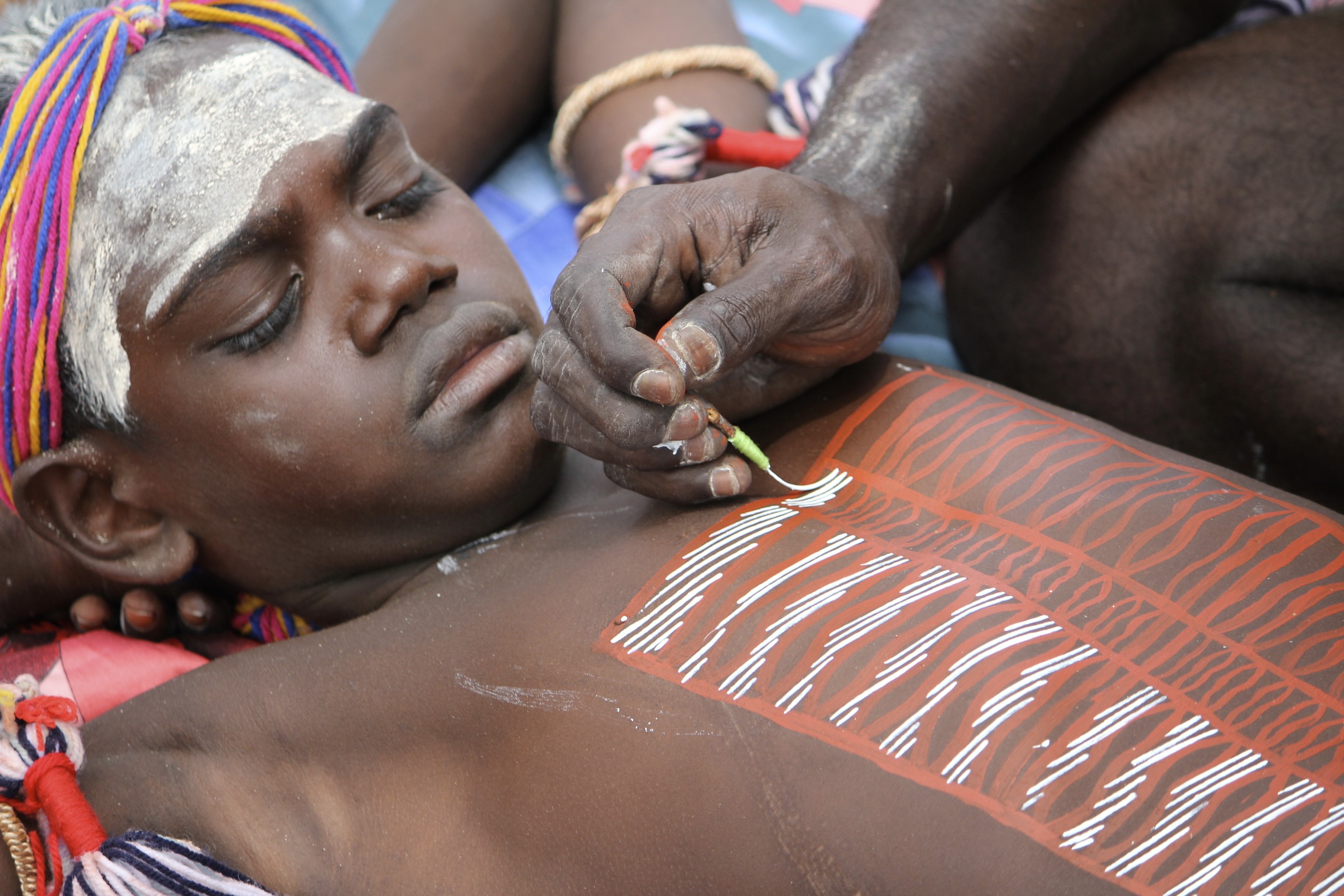Yolngu were independently recording cultural action with reel to reel and cassette recorders throughout the 80’s and 90’s. These musical performances were distributed locally to celebrate and teach traditional songs. The Mulka Project continues this tradition by providing a range of production and postproduction facilities. The support of philanthropic and government funding has resulted in editors, archivists, curators, producers and directors become permanent employees. And a pool of freelance staff has developed, building a local network to document and distribute cultural action. Over the last thirty years, Wukun Wanambi has seen Yolngu take control of their representation, “through our journey Yolngu law was passed on to outsiders with their cameras and microphones who wanted to understand the way we live and survived. Now we’re still passing on our law through cameras and microphones, but instead we got the facilities on our country, to share our law with our people and the world.” Permanent access to audiovisual tools has lead to international film festivals prizes, corporate commissions, broadcast television, and art awards. Therefore the model of making content for a Yolngu audience does not necessarily exclude non-Yolngu audiences. In fact serving a local purpose enhances global interest due to the uniqueness of the product.
The local refusal to be dominated by external forces is practiced by maintaining a focus on a local audience. Yumitjin Wunungmurra believes, “kids are always learning about western culture for work and education, but Yolngu have culture, we have our songs and laws, Mulka is about representing us.”
“Working at Mulka you learn both media production and Yolngu law. We show the kids how old people fight for country with painting, song and dance. Us young people have to follow their footsteps and learn what the old people have done for us to keep their dreams flowing. My songs, my culture, my land is in the songlines, it tells my story. The knowledge in the songs needs to be studied and practised. So that I can pass it on to my kids, and their kids. I listen to the audio recordings so I’m ready to lead my family and sing at ceremony. Mulka staff member, Ishmael Marika
Owning a production house alongside an audiovisual library gives the community access to historical documents and new technology. This provides ways to process fragments of recorded history and assemble representations of cultural substance. Dialogue among different versions of history fulfils the original vision of inaugural Mulka Cultural Director, Dr Marika, “We want to bring knowledge of the past to the present, to preserve it for future generations and to understand what meaning it has in the present day and age.”

“As the Mulka Project is growing up we need to be clear that it is just a resource and the law and culture is coming from the land where people are staying, even where there is no one staying, its patterns, the designs and culture, are coming from the country.” Djambawa Marawili, Mulka Board member.
From ARTLINK
